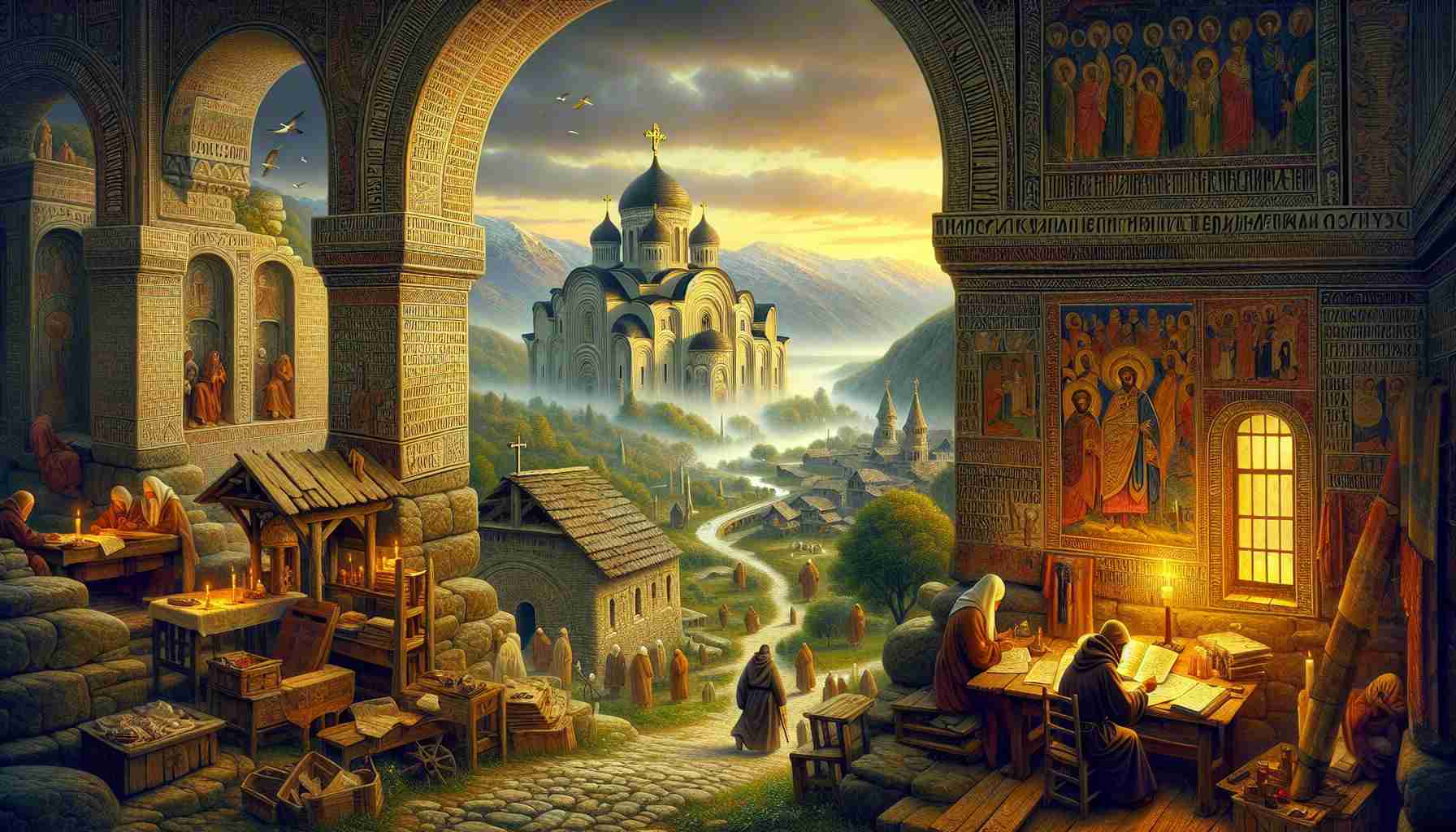

Smoke curled from the shattered standards of the Byzantine army as the sun climbed over the hills outside Pliska. July 26, 811. The air stank of blood and pine. Among the broken ranks of imperial soldiers, the mangled body of Emperor Nikephoros I lay sprawled, his golden armor cracked open like an offering. His head, soon to become Khan Krum’s drinking vessel, was already being prepared by Bulgar warriors with bone knives and chanting in Old Bulgar.
They had crushed the great empire in its pride. But no feast followed the slaughter, only silence.
Inside his timber palisade, Khan Krum sat alone beneath a carved beam of his court, where pagan markings of Tangra were etched beside recent symbols he did not yet understand. Silver moonlight slashed between the slats, brushing over the strange scrolls sent by monks from Constantinople—letters of peace and promises, and in them, verses that spoke in a rhythm the warrior had not heard before. One parchment, in particular, bore foreign words that haunted him:
“To open their eyes, so that they may turn from darkness to light, and from the power of Satan to God…”
The words were from a man called Paul, once a persecutor of Christians, who had turned in a blaze of vision and remorse.
Krum did not understand that kind of weakness. And yet, as he read deeper, something tightened under his ribs.
Over the following nights, he dreamed of fireless battles, of a light that scorched not flesh, but the soul. A man cloaked in blinding white would speak from the clouds in unintelligible tongues. A lion kneeled before a lamb, an eagle soared and was devoured by flame.
He ordered the messages read aloud by his scribes and auctioned the Byzantine prisoners back to their cities, sending their ears laden with rumors: the Khan shared words with Christian monks, he read their God’s words.
The missionaries came first as prisoners. They stayed as guests.
Years passed. Krum died in his furs during a bitter winter, but the seeds he tolerated—these symbols, these scrolls—weaved into the sinews of Bulgaria. His son Omurtag resisted. Then his son's son, Boris, took the name of the lion and the lamb.
They called him Boris-Mikhail, baptized in secret in 864, in the capital once lit by fire and screams. He had been a prince formed by swords, baptizing his court while the boyars plotted murder. They could not understand giving up ancestral gods for a foreign one who died on a cross. Pagan fires burned again—this time against the Christians within—but Boris held the cross aloft as monarchs and warriors fell away.
He turned their swords to Scripture.
With a face stern, etched by war and mercy, Boris sent for missionaries—Cyril and Methodius, learned men of the East who carried not spears, but alphabets. They shaped the Slavic tongue with letters and the Word, so that the people would read the Gospels in their own blood and language. The Glagolitic script began to sprout in grammar schools attached to monasteries, rustic towers carved with cross and vine.
Bulgaria, once pagan, once the executioner of emperors, shifted. Not by conquest, but conversion. Cathedrals rose where idols were smashed. The chapel of Preslav whispered hymns instead of battle chants. Stone walls etched with cross-laden Cyrillic echoed the testimony of Paul the Apostle. From “power of Satan,” this land now drank from wells of "light and forgiveness."
Yet doubt haunted the edges of this newfound grace. Whispers claimed Boris feared Byzantium's revenge or hoped for Rome's approval. Was his heart truly turned? That, only God knew. But the fruit bloomed regardless—monasteries multiplied, songs were sung not in Greek, but in Bulgarian. A new identity took root—orthodox and Slavic, baptized and unveiled.
Near the stone foundations of the Pliska basilica, they said a grove of oaks once stood where sacrifices were made—goats for Tangra, blood upon bark. Now lilies grew there each spring. No one could say why.
On feast days, when the bells of the Holy Forty Martyrs Church in Veliko Tarnovo rang across the hills and old men signed their chests three times, they remembered. Not Nikephoros. Not Tangra. But a moment in which a land turned toward the light.
God’s mercy had chased a warrior king down the paths of dreams, through scrolls and prisoners, through loss and lineage. The brightness had called, soft but unrelenting, until hearts turned like plows in spring.
And the nation that once raised the emperor’s skull in mockery now lifted chalices in Eucharist.
Not by war, but by Word.